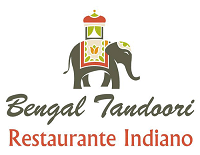The link between Portuguese and Indian cuisines can be traced back to the historical interactions between Portugal and India during the colonial era. The Portuguese were the first Europeans to establish direct sea routes to India in the late 15th century, leading to a significant exchange of goods, ideas, and culinary traditions between the two cultures. This historical connection has left a lasting impact on both Portuguese and Indian cuisines.
Spices and Ingredients: One of the most significant influences of Indian cuisine on Portuguese cuisine is the introduction of a wide range of spices and ingredients. The Portuguese explorers brought back exotic spices such as black pepper, cinnamon, cloves, and cardamom from India, which revolutionized European cuisine at the time. These spices became integral to Portuguese cooking and are still used in traditional dishes today.
Cooking Techniques: Indian cooking techniques, such as the use of clay ovens (tandoors) for grilling and baking, have also made their way into Portuguese cuisine. The tandoor-style cooking is evident in popular Portuguese dishes like Piri Piri chicken, which is marinated and grilled to perfection. The Portuguese also adopted the technique of using marinades and spice rubs to infuse flavor into meats and fish, similar to Indian culinary practices.
Fusion Cuisine: The colonial connection between Portugal and India led to the emergence of fusion cuisine that combines elements from both culinary traditions. For example, the famous Portuguese-Indian dish called “Vindaloo” is a result of this fusion. Vindaloo originated in Goa, a former Portuguese colony in India, and is a spiced curry dish that combines Indian spices with Portuguese ingredients like vinegar and garlic.
Seafood Influence: Portugal’s coastal location and rich fishing traditions have influenced Indian cuisine, particularly in the western coastal regions of India. Portuguese techniques of grilling and marinating fish have influenced dishes like Goan fish curry and other seafood preparations in the region.
Sweets and Desserts: The influence of Portuguese cuisine can also be seen in Indian sweets and desserts. The Portuguese introduced ingredients like eggs, refined sugar, and techniques like baking and custard-making, which influenced Indian sweets such as Bebinca, a layered Goan dessert, and several variations of milk-based sweets.
It’s important to note that while there are significant culinary connections between Portuguese and Indian cuisines, each cuisine has developed its own distinct flavors and regional specialties over time. The historical exchange and fusion of culinary elements have contributed to the diversity and richness of both Portuguese and Indian gastronomy, making them unique and beloved worldwide.

